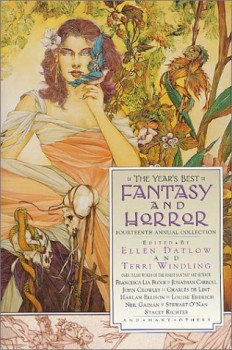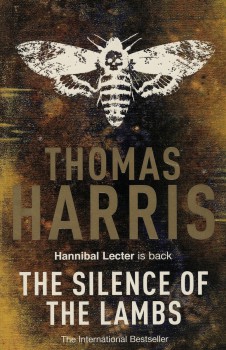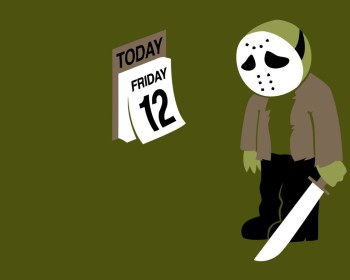Adventures in Horrific Fantasy Literature?
 Two weeks back, my Black Gate post took a stab at identifying a handful of the most hair-raising, spine-tingling short fiction ever written (in Vintage Scares). The more I looked at the stories that I (and others) came up with, the more excited I became about them. Unfortunately, my enthusiasm only served to underscore a curious fact that I have not always been ready to claim: I have become both a consumer and a writer of horror fiction.
Two weeks back, my Black Gate post took a stab at identifying a handful of the most hair-raising, spine-tingling short fiction ever written (in Vintage Scares). The more I looked at the stories that I (and others) came up with, the more excited I became about them. Unfortunately, my enthusiasm only served to underscore a curious fact that I have not always been ready to claim: I have become both a consumer and a writer of horror fiction.
That’s not something I would ever have expected. My version of horror, my “elevator speech definition,” would for years have centered on the gross-out work of Clive Barker (Hellraiser) and the voyeuristic nastiness of the movies I saw growing up: A Nightmare On Elm Street, Evil Dead 2, and Friday the 13th. Horror to me meant attractive but stupid teenagers getting slaughtered and it was strictly low-brow. Not worthy of serious consideration.
Never mind that I’d already read Mary Shelley and Bram Stoker, not to mention Arthur Conan Doyle and a fair amount of Poe. By the time I’d been thoroughly eddicated by college, I’d relegated horror to a very distant cultural bayou. It was, at best, the literary equivalent of junk food.
But then a funny thing happened. I bought a copy of The Year’s Best Fantasy and Horror 14th Annual Collection, edited by Ellen Datlow and Terri Windling. As with all of those (sadly now defunct) collections, fantasy and horror were presented back-to-back and face-to-face, bumped up against one another as inescapably close kissing cousins. Confronted by the likes of Susanna Clarke, Esther M. Friesner, Ian Rodwell & Steve Duffy, Tanith Lee, and Kelly Link, it was time to re-evaluate.
That particular Datlow/Windling annual appeared in 2001. The world had plenty of real horrors to grapple with that year –– as it typically does, when we take the time to take note.
At about the same period, I discovered that my personal written output was veering away from “realistic” literary fiction to something consistently more fantastical. Not only that, my fantasy stories were (slowly) getting acceptances. Most of my literary output wasn’t. So, I gradually let the walls tumble down. Instead of writing what I thought might be “important,” I began writing whatever came into my head.
Some of it was crap, of course. Execrable. You wouldn’t believe the stupid notions that get lodged in my head.
But some of it wasn’t so bad.
And you know what? Most all of the results fall, to some degree, into the wide and welcoming parameters of horror fiction.
 In the first of my Black Gate–published stories, “The Trade,” my trio of heroes, Gemen, Velori, and Dorvic, enter an earthen crypt chock-a-block full of what turn out to be very ambulatory skeletons. Yes, this is an action-adventure tale, a slice of slashing sword-and-sorcery, but the threat level rises considerably when my heroes’ opponents turn out to be both long-dead and restless. And if skeletons seem fairly run-of-the-mill, no matter how cleverly I describe them, not to worry; there’s something much worse waiting in the wings.
In the first of my Black Gate–published stories, “The Trade,” my trio of heroes, Gemen, Velori, and Dorvic, enter an earthen crypt chock-a-block full of what turn out to be very ambulatory skeletons. Yes, this is an action-adventure tale, a slice of slashing sword-and-sorcery, but the threat level rises considerably when my heroes’ opponents turn out to be both long-dead and restless. And if skeletons seem fairly run-of-the-mill, no matter how cleverly I describe them, not to worry; there’s something much worse waiting in the wings.
C.S.E. Cooney’s Black Gate outing, “Godmother Lizard,” also treads heavily on a rich vein of horror. Only a little way in, readers will encounter these lines:
“I live with my father and sisters,” he said, “in my Mother’s house.”
After a pause, he added, “My Mother is eating my father. Very slowly.”
With proper attention paid to Chekhov’s dictum that if you show a gun in the first act, you had damn well better have it go off before the curtain, Cooney does of course show readers, later on, exactly what it is that’s eating father. Yes, Black Gate ’s masthead proclaims that those who enter here will find “Adventure in Fantasy Literature,” but there’s no question that those adventures often come laced with the trappings of horror.
Sadly, I still feel squeamish about identifying myself in public as a horror writer. Pathetic, I know, especially because the company really is good. Heck, even Shakespeare wrote ghost stories (Hamlet and MacBeth).
Look at Homer, forcing Odysseus to steer past the likes of Scylla and Charybdis. Or, for something more contemporary, try Thomas Harris’s The Silence of the Lambs or perhaps Joyce Carol Oates’s We Were the Mulvaneys. If the latter isn’t horror, especially in the swamp scene, then I don’t know what is.
 And yet, when I think about “owning” this genre, I still feel… unclean.
And yet, when I think about “owning” this genre, I still feel… unclean.
I mean, let’s face it, it’s socially damaging enough to admit to reading horror fiction. To actually write the stuff? What kind of loony-tune am I, anyway?
My attempts to exorcise these guilt-happy demons are ongoing. Most of my efforts involve writing still more horror fiction, as with my series of Renner & Quist tales, “The Skates,” “Sleeping Bear,” (release date TBD), and “A Perfect Wedded Bliss,” from Not One Of Us #48 (which, by the way, earned an Honorable Mention nod from Ellen Datlow’s Year’s Best Horror Volume 5 this past year). All three of these stories follow my odd-couple pair of investigators as they attempt to put our restless world to rights. They never get paid for their work, and most of their “clients” are haunts of one type or another. Nor do they always succeed. Life, in Renner and Quist’s universe, is much like real life: sometimes people die.
Structurally, the Renner and Quist stories allow me one crucial indulgence. Because each of their adventures is told from alternating first-person points of view, I can dig into both Dale Quist’s manly-man’s crudities and the contrasting, comical refinements of Reverend Renner’s sensibilities. Essentially, I can mix my horror and literary proclivities in one package. It is, in many ways, the perfect solution.
At least for me.
 Anyway. No lesser a luminary than Neil Gaiman has proclaimed that horror writers are among the happiest, most well-balanced people he knows. Possibly Mr. Gaiman needs to get out more, but sure, I’ll take the compliment: I feel pretty balanced, even when I kill off a character in a jet of Wes Craven-worthy blood. Perhaps writing, like art-making in general, really is cheaper than therapy. In any case, I certainly have no shortage of subjects; the world and its endless disasters provide a ready surfeit of inspiration.
Anyway. No lesser a luminary than Neil Gaiman has proclaimed that horror writers are among the happiest, most well-balanced people he knows. Possibly Mr. Gaiman needs to get out more, but sure, I’ll take the compliment: I feel pretty balanced, even when I kill off a character in a jet of Wes Craven-worthy blood. Perhaps writing, like art-making in general, really is cheaper than therapy. In any case, I certainly have no shortage of subjects; the world and its endless disasters provide a ready surfeit of inspiration.
So stand back, o readers of Black Gate.
I have an admission to make.
I, Mark D. Rigney, am, at least sometimes, a…
Okay, hang on. I’ll get there.
A horror writer.
‘Til next time, dream hard.
Write harder.
Mark Rigney has published three stories in the Black Gate Online Fiction library: ”The Trade,” “The Find,” and “The Keystone.” Tangent called the tales “Reminiscent of the old sword & sorcery classics… once I started reading, I couldn’t stop. I highly recommend the complete trilogy.”
Interesting. Oddly enough, I was the opposite. Though I read fantasy in my younger days, by my teen and college years I was mainly a horror reader and writer, and stuck with that until my early 30s when I re-discovered my joy of fantasy.
And now, though I feel more “comfortable” (for lack of a better word) writing horror, I tend to write much more fantasy, though there are definitely horrific elements found there.
Intriguing question; when does horror stop and fantasy start? If it focuses on an adventurer such as Conan? When does horror stop and suspense begin? Does the lack of the paranormal make it more suspense than horror? I remember Don Glut’s book Classic Movie Monsters. Of the monster he covered in that book who started in literature, only Quasimodo and the Phantom of the Opera, as I recall, lacked paranormal, fantastic abilities, though the former’s tale features some undertones.* Does one consider Fantomas’ prose adventures horror or suspense? What of Doctor Fu Manchu? Doctor Mabuse? What of Tom Ripley? Richard Stark’s Parker?
*Glut later reversed himself somewhat on the Yuku Monster Kid boards by stating the Quasimodo novel stands outside of the horror genre.
Of course, many of the prominent fantasy properties to debut prior to 1938 generally received reviews as children’s books (Peter Pan, Oz, Wonderland, Hobbitt), with Conan, Tarzan and a few other exceptions, so they tended not to have the profundity associated with horror.
Ty – If you and I were fictionalized, it appears we would be each other’s Jekyll and/or Hyde. Mirror, mirror…
PB210 – Ultimately, the Maginot line between horror and any other fictional vintage is thin, but we as a species seem to require divisions, and lots of them. Thus we have semiotics, and so on; “systems of difference.” Thus we have some ongoing troubles, too: racism, for one. But your comment reminds me of how permeable the boundaries are between our various encampments, even WITHIN the supposedly clear bounds of “genre” fiction. Fantasy and horror are dancing partners, swirling across a less than level ballroom floor. Who knows what steps they’ll think up next?
Quasimodo strikes me as an outsider character, and so qualifies for at least some type of “horrific” categorization. But ultimately he is misunderstood, and THE HUNCHBACK OF NOTRE DAME is a novel more interested in treating the outcomes of that misunderstanding than in working through horror tropes. Or at least that’s how I see it, and it’s been a LONG while since I looked at those pages.
I think you’re right that fantasies used to be treated as children’s material, but the reviewers who did so forgot that the fairy tales and legends of old (and I refer to ALL cultures here, not just Northern Europe) were told by adults, in an endless cycle of oral tradition. If said fantasies were AIMED at children, they were FOR everyone. It has always been so, and the only adults who alarm me, as adult readers, are those who say they “don’t like fantasy.” I frankly don’t understand how that can be, especially if their parents ever read to them, or if they themselves ever read to their kids.
Anyway.
I’ll get off my soapbox now, and go read a story to my nine-year-old. No horror tonight: it’s Carl Hiassen’s HOOT. Not a favorite, so far…too bad, too, ‘cos this book is right up my politically Green alley…
As for the differences between horror and fantasy, though by no means a good defining, I once explained it to my wife thus:
In horror, a monster shows up and everyone screams, “Oh s—! We’re screwed!”
In fantasy, a monster shows up and everyone shouts, “Hey, let’s go kill this thing!”
Personally, I like Noel Carroll’s description of horror as literature that evokes a certain emotion, which he calls “art-horror.” (See his book The Philosophy of Horror.)
If we accept this as a necessary condition of horror, then it seems to me that it fits equally well within fantastic or realistic literature. And if that’s so, then trying to distinguish between horror and fantasy, as distinct genres, is a fairly futile exercise.
That’s not to say that there might not be other interesting things that arise from attempting to distinguish them.
Ty – And what did your wife say in response?
: )
James – One of the reasons the divisions interest me is because of my work history as a corporate trainer for Borders Books and Music. Why do certain books go in certain places? Nobody really wants to shelve Clive Barker in “Literature.” Is the solution to get rid of the lit section? Possibly everything fictional should go on one long shelf? But do we then add Harlequins? Or stranger still, THE STORY OF O and other popular old-guard porn? Divisions abound…and for better or for worse, real people in the workaday world (including publishing) spend a lot of sweat trying to sort out what goes where. I won a novel contest a few years back with A MOST UNRULY GNOME, a manuscript that is deemed unpublishable because nobody knows where to file it. True story, dat.
Hmm. Maybe that’ll be my next blog post…
Another interesting reflection on horror in contrast to fantasy; many of the prominent horror properties in Glut’s profiles resulted from laboratory work; Mr. Hyde, Frankenstein’s Monster, the Lost World dinosaurs (he covers in passing), etc. (I have noted that the Phantom of the Opera lacked a paranormal aspect). Doctor Fu Manchu seemed to rely on advanced science. In contrast, Count Dracula in Stoker’s novel’s power derived from the sorcerous Scholomance, while Ayesha operated as a sorcerous, but they seem exceptions. Dorian Gray’s situation stands hinted as paranormal in a sorcerous way.
Quick correction; the Lost World dinosaurs did not derive from laboratory work, but lacked magical aspects.
Mark, the wife gave me her familiar vacuous stare as if she had no clue what I was talking about. Then she shrugged and said, “Okay.”
[…] 5) http://www.blackgate.com/2013/09/02/adventures-in-horrific-fantasy-literature/ […]